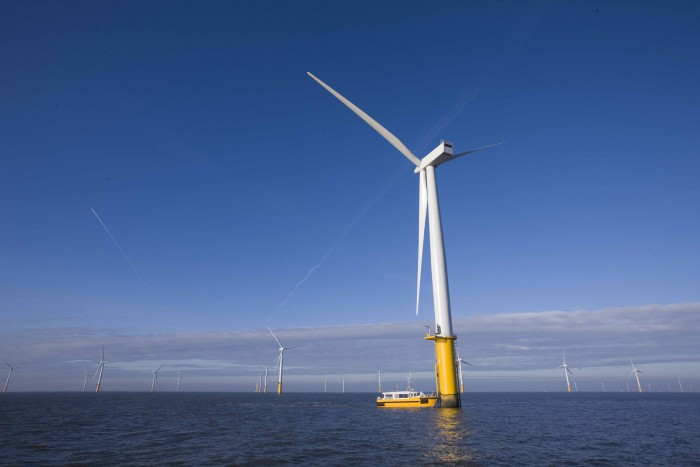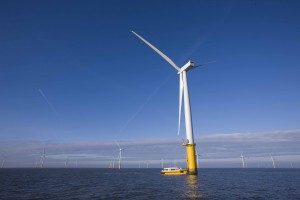25th November 2015
The Road to a New Global Climate Deal

The next round of UN climate negotiations kick off in Paris on 30th November. And while these rounds happen annually, this year is particularly significant because the prize is a new global, legally-binding treaty on climate change. Whether that can be achieved, and how ambitious it is, matters to us all.
What is it?
The 196 members of the UN Framework Convention on Climate Change (UNFCCC) have committed to agreeing a new deal at Paris which is legally-binding and applicable to all countries. Its ultimate aim is to prevent average global temperatures from rising by more than 2 degrees.
So far, 163 countries have announced commitments to reduce their emissions. I was delighted to see Thailand submit its pledge last month, promising to cut emissions by 20%. This is a great start, and we and our EU partners will be looking for ways we can help Thailand achieve that goal.
Why is it important?
Climate change is one of the most serious threats facing our world. And it is not just a threat to the environment. It is also a threat to our security, our development and our economic prosperity.
South East Asia is particularly vulnerable to the impacts of climate change. A recent study by the UK Meteorological Office suggested that by 2100, without reducing emissions, the region could face:
- A 5% increase in days of drought;
- A 77% increase in inland river flooding; and
- An 8% decrease in water available for agriculture (while demand for this grows at 10%).
Thailand has also experienced coastal flooding and a rising sea level in some areas. Dangerous climate change can only be avoided if global emissions are reduced. The cost of reducing emissions will be less if all countries move together, and the most effective way to do that is through a global deal, which is transparent and bound by strong rules.
What will it achieve?
A strong and effective global climate deal in Paris can bring down global emissions, provide the necessary confidence to governments and investors, and keep our goal of limiting global warming to 2°C within reach.
A global deal will also provide opportunities. It will encourage innovation and investment in low carbon technology, increase economies of scale in clean energy, and accelerate the growth of the low carbon economy.
But we’re not there yet. For a global deal to be effective, it must be:
- Ambitious. There needs to be a real shift from business as usual to an acceptance that low carbon economies are the only option in the future;
- Accountable. There should be a regular review process every five years to ensure we’re making the necessary progress;
- Legally-binding. A strong set of rules applicable to everyone is critical to ensuring transparency and increasing certainty for the investments we need;
- Long-Term. The commitments need to be sustainable and long-lasting.
- Properly Financed. We need to ensure there is enough finance to help the most vulnerable countries reduce emissions and adapt to impacts.
What is the UK doing?
We are playing our part. The EU has committed to reduce emissions by 40% by 2030. The UK will go even further, reducing our emissions by more than 50% by 2030 and by 80% by 2050. We are working with the EU and international partners to encourage strong and effective action from all.
The UK is one of the largest donors helping the most vulnerable countries develop sustainably and be more resilient to climate impacts: between 2010 and 2016 we are giving £4.48bn.
In Thailand, we’ve been supporting emissions reduction through a number of projects, including publication of a solar energy roadmap, and working with the Thailand Greenhouse Gas Organisation to develop the ‘Thailand 2050 Emissions Pathways Calculator’, a web tool which allows anyone to map out their own emissions future for Thailand by making choices about energy policy and land use.
Is Paris the end of the story?
A single treaty will not solve climate change. Our aim is to see all countries take on commitments which keep 2 degrees within reach; support the private sector in driving the most cost-effective long-term solutions to this; and help the poorest and most vulnerable to adapt to unavoidable climate change.
Beyond Paris, all countries need to look at what more they can do to push the boundaries of their ambition even further – we all need to see our commitments at Paris as the minimum rather than the maximum that can be achieved. Not an easy task by any means, but one that is possible if we work together.

Global warming caused by pollution is a problem discussed in the social media vigorously and yet people and organizations (especially smaller ones) are uninformed and simply said don’t care about it’s effects on everything. It seems far in the future and “not my problem” for most. Articles like this one should be widely shared in the web space. What the governments do to prevent it is a confirmation how serious the problem is.